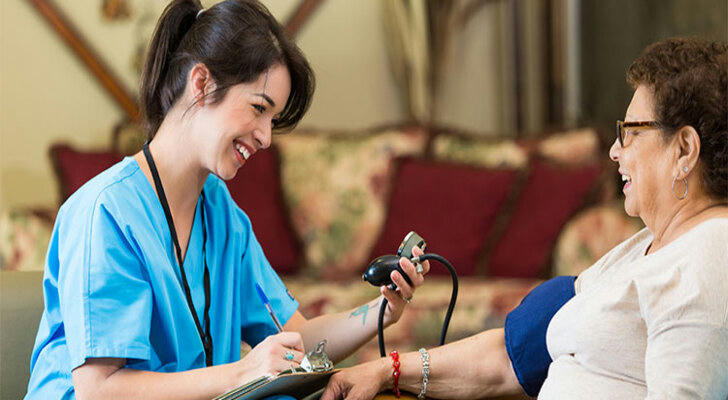Is Becoming an LPN Worth It in 2025?
In recent years, Licensed Practical Nurse (LPN) positions have gained more attention from people looking for stable and meaningful healthcare careers. Compared to longer educational paths like becoming a registered nurse or physician, becoming an LPN offers a faster, more approachable route into the healthcare field.

According to the U.S. Bureau of Labor Statistics (May 2024), the average annual wage for LPNs was $62,340, or about $29.97 per hour. That’s an encouraging number for a role that typically requires only a postsecondary non-degree award to start. The field had 657,800 employed LPNs in 2023, and the job requires no prior work experience.
This makes LPN one of the most accessible and rewarding careers in healthcare, especially for those looking for a quick entry point.
LPN Certification: What You’ll Learn and Where to Train
One of the biggest advantages of becoming an LPN is how quickly you can get started. Unlike a four-year nursing degree, most LPN programs can be completed in 12 to 18 months.
Here are some common learning methods:
1. Community Colleges
Suitable for people: Those with limited budget, who need local learning resources or prefer traditional classroom learning.
Why choose this path?
• Lower tuition costs compared to private schools
• Academic support and tutoring services
• Cooperate with local hospitals to provide clinical internship opportunities
2. Vocational and Technical Schools
Suitable for people: People who want to learn quickly and find employment as soon as possible.
Why choose this path?
• Focused, hands-on training
• Shorter program lengths
• Career counseling and job placement help
3. Hospital-Based Training Programs
Suitable for: Nursing beginners who wish to "learn while working" or plan to work in a hospital for a long time.
Why choose this path?
• Learn in the real hospital environment
• Build relationships with healthcare professionals
• High employment potential at the training hospital
4.Online + In-Person Hybrid Programs
Suitable for people: People with busy work, heavy family responsibilities, or those who have difficulty commuting to class.
Why choose this path?
• Flexible schedules that fit around your life
• Best of both worlds: online learning + hands-on training
• You can receive high-quality training even if you are far from the campus
Moreover, becoming an LPN can be a stepping stone to more advanced roles, such as Registered Nurse (RN) or nursing specialties, through bridge programs.
What You’ll Learn in an LPN Program?
LPN programs are designed to give you the practical skills needed on the job. You’ll cover:
• Anatomy and physiology – how the human body works.
• Basic nursing care – like taking vital signs, wound care, and hygiene
• Pharmacology – understanding medications and safe administration
• Patient communication – how to care for people physically and emotionally
• Clinical practice – real hands-on training in hospitals or clinics
It’s a great mix of classroom knowledge and real-life practice that prepares you for your licensing exam and your career.
Well-Known LPN Programs and Schools in the U.S.
Here are some respected schools across the U.S. that offer strong LPN training programs:
1. Practical Nursing Program – Monroe College (New York)
• Located in the Bronx, New York City
• The course lasts 1 year
• Providing clinical training and modern laboratory environment
• Emphasis on licensure exam (NCLEX-PN) preparation
2.Vocational Nursing Program – Dallas College (Texas)
• Project duration: 12 months
• Tuition fees are relatively affordable
• Abundant clinical internship opportunities (including hospitals and elderly care centers)
• Convenient location, suitable for local residents
3.Practical Nursing – Miami Dade College (Florida)
• NCLEX-PN Exam Preparation with High Pass Rates
• Strong faculty
• Close cooperation with medical institutions in the Miami area
• Multicultural learning environment
4. Licensed Practical Nursing – Rasmussen University (Multiple States)
• Providing a model that combines online courses with offline internships
• Programs offered in multiple states (Minnesota, Florida, Illinois, etc.)
• Suitable for employees who are already employed and can arrange their time flexibly
5. Practical Nursing – Community College of Philadelphia (Pennsylvania)
• Providing fair training opportunities to the local Philadelphia community
• Students can practice in local hospitals
• Provide career guidance support
These schools each have their strengths, whether it’s affordability, flexibility, exam prep, or access to clinical placements. Choosing the right one depends on your schedule, location, and personal goals.

Real Story: How Ashley Changed Her Life
Take the story of Ashley, a 32-year-old mother from Ohio. Working two part-time retail jobs to support her daughter, she stumbled upon a flyer about a local LPN night program. She enrolled at Cuyahoga Community College, juggling classes and parenting for over a year.
After completing the program and passing the licensing exam, she secured a position at a pediatric clinic. Her annual income rose to $58,000, with healthcare coverage and a consistent work schedule.
She describes the change this way: “I went from surviving to truly living. The work is meaningful, and for the first time, I feel like I have a future.”
Conclusion:
If you’re looking for a stable, meaningful career without spending years in school, becoming an LPN in 2025 remains a solid option. The path is clear, the training is manageable, and the reward—both emotionally and financially—is real.
